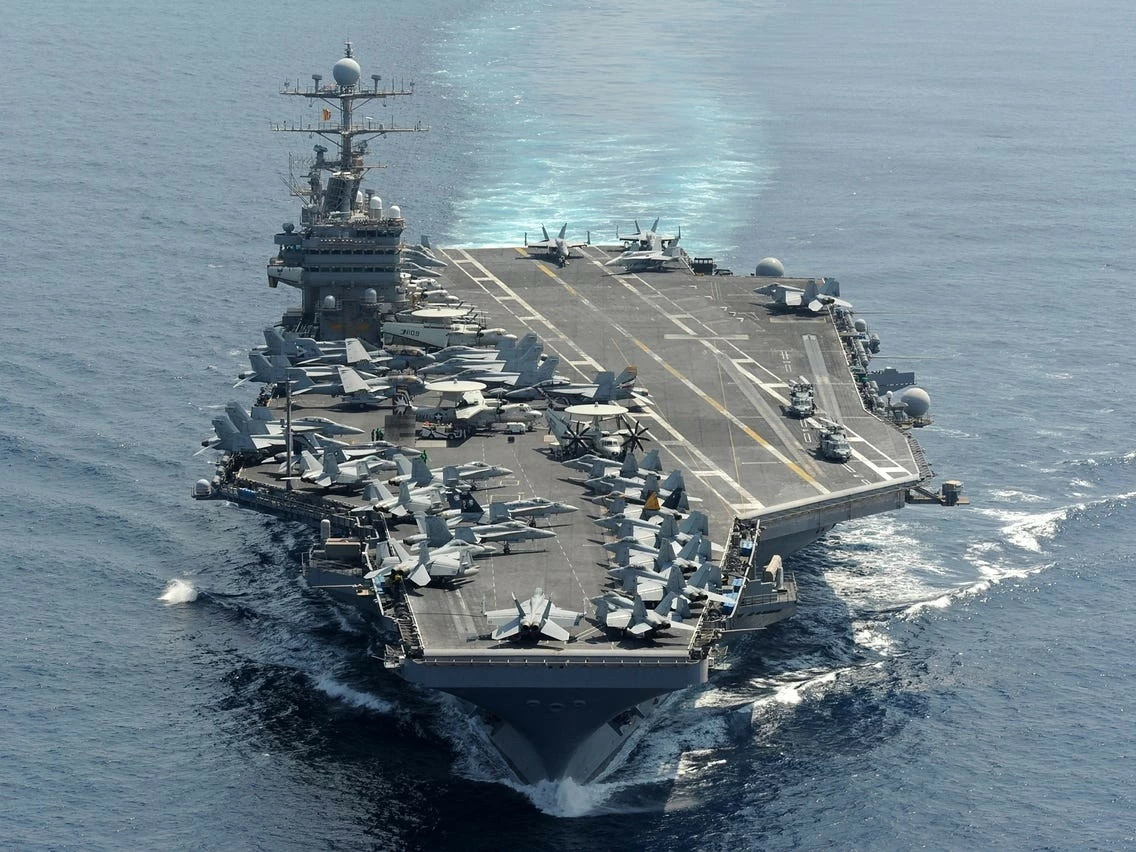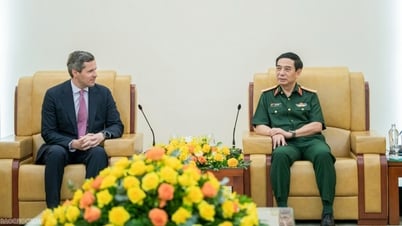Recently, the US took a rare public action to announce plans to deploy guided missile submarines to the Middle East, in the context of the situation in the region at risk of falling into a full-scale conflict.
 |
| The US has urgently dispatched the Abraham Lincoln aircraft carrier strike group to the Middle East amid the risk of an Iran-Israel conflict. (Source: Reuters) |
On August 12, Israeli Defense Minister Yoav Gallant confirmed that he had a phone call with his US counterpart Lloyd Austin on the evening of August 11, discussing operational and strategic coordination as well as the Israeli military's readiness against threats from Iran.
Axios news agency quoted a source saying that Mr. Gallant informed Mr. Austin that Iran is currently preparing for a large-scale attack on Israel.
Meanwhile, Reuters news agency quoted a statement from the Pentagon issued after the phone call saying that Mr. Austin ordered the Abraham Lincoln aircraft carrier strike group to urgently go to the Middle East.
"Secretary Austin reaffirmed Washington's commitment to taking every possible measure to defend Israel and noted the strengthening of US military capabilities and posture throughout the Middle East in the context of escalating regional tensions," the Pentagon's announcement said.
The public announcement of the submarine deployment is a rare move by the Pentagon, according to a social media post, as the nuclear-powered submarine USS Georgia was already in the Mediterranean in July.
Earlier, the US military announced the deployment of additional fighter jets and warships to the Middle East, as Washington seeks to strengthen Israel's defense capabilities.
Also related to the situation in the Middle East, on August 11, in an interview with CBS television, US President Joe Biden said that tensions could easily escalate into a regional war and that he and his team "are working every day" to ensure this situation does not happen.
Regarding the possibility of reaching a ceasefire agreement in Gaza before leaving office in January 2025, President Biden replied: "Yes. It is still possible. The plan that I put forward, agreed upon by the Group of Seven (G7), the United Nations Security Council, is still feasible."
On the same day, German Chancellor Olaf Scholz expressed concern about the risk of regional war in the Middle East during a phone call with Israeli Prime Minister Benjamin Netanyahu.
Stressing the need to break the "destructive cycle of retaliatory violence, reduce tensions and take constructive action to cool down the conflict in the region", Mr. Scholz called on all parties to make efforts to reach a ceasefire agreement in Gaza and release hostages held by the Hamas movement in this land.
Source: https://baoquocte.vn/chao-lua-trung-dong-lo-tin-iran-sap-tan-cong-quy-mo-lon-israel-my-ra-menh-lenh-khan-tong-thong-biden-thua-nhan-nguy-co-lon-282295.html






































































![[Photo] General Secretary To Lam attends the launch of 3 digital platforms serving the implementation of Resolution No. 57-NQ/TW](https://vphoto.vietnam.vn/thumb/402x226/vietnam/resource/IMAGE/2025/7/2/d7fb7a42b2c74ffbb1da1124c24d41d3)





































Comment (0)